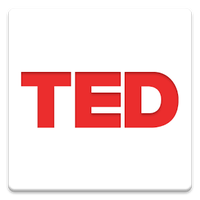Siddhartha Mukherjee: Soon we'll cure diseases with a cell, not a pil (2)
Siddhartha Mukherjee: Bald werden wir Krankheiten mit einer Zelle heilen, nicht mit einem Pil (2)
Siddhartha Mukherjee: Pronto curaremos enfermedades con una célula, no con un pil (2)
Siddhartha Mukherjee : Bientôt, nous soignerons les maladies à l'aide d'une cellule et non d'une pilule (2)
シッダールタ・ムカルジーピルではなく細胞で病気を治す日も近い (2)
Siddhartha Mukherjee: Wkrótce będziemy leczyć choroby komórką, a nie tabletką (2)
Siddhartha Mukherjee: Em breve curaremos doenças com uma célula, não com uma pilha (2)
Сиддхартха Мукерджи: Скоро мы будем лечить болезни клеткой, а не таблеткой (2)
Siddhartha Mukherjee: Yakında hastalıkları bir pil ile değil, bir hücre ile tedavi edeceğiz (2)
悉达多·慕克吉:很快我们将用细胞而不是细胞来治愈疾病 (2)
悉達多·慕克吉:很快我們將用細胞而不是細胞來治癒疾病 (2)
The former is a scale shift.
The latter is a perceptual shift.
Последнее представляет собой сдвиг восприятия.
14:37Now, antibiotics created such a perceptual shift in our way of thinking about medicine that it really colored, distorted, very successfully, the way we've thought about medicine for the last hundred years.But we need new models to think about medicine in the future.
14:37 Так вот, антибиотики вызвали такой сдвиг в восприятии нашего мышления о медицине, что оно действительно окрасило, исказило, очень успешно то, как мы думали о медицине в течение последних ста лет. Но нам нужны новые модели, чтобы думать о медицине. в будущем.
That's what's at stake.
Вот что поставлено на карту.
14:58You know, there's a popular trope out there that the reason we haven't had the transformative impact on the treatment of illness is because we don't have powerful-enough drugs, and that's partly true.
14:58You know, there's a popular trope out there that the reason we haven't had the transformative impact on the treatment of illness is because we don't have powerful-enough drugs, and that's partly true.
14: 58 Sabes, hay un tropel popular que dice que la razón por la que no hemos tenido el impacto transformador en el tratamiento de la enfermedad es porque no tenemos medicamentos lo suficientemente poderosos, y eso es en parte cierto.
14: 58Vous savez, il y a un trope populaire là-bas que la raison pour laquelle nous n'avons pas eu d'impact transformateur sur le traitement de la maladie est parce que nous n'avons pas de médicaments assez puissants, et c'est en partie vrai.
14:58 Знаете, существует популярное мнение, что причина, по которой мы не оказали преобразующего влияния на лечение болезней, заключается в том, что у нас нет достаточно мощных лекарств, и это отчасти правда.
But perhaps the real reason is that we don't have powerful-enough ways of thinking about medicines.
It's certainly true that it would be lovely to have new medicines.
But perhaps what's really at stake are three more intangible ends: mechanisms, models, metaphors.
Но, возможно, на карту поставлены еще три неосязаемые цели: механизмы, модели, метафоры.
15:34Thank you
15:35(Applause)
15:44 Chris Anderson: I really like this metaphor.
How does it link in?
There's a lot of talk in technology land about the personalization of medicine, that we have all this data and that medical treatments of the future will be for you specifically, your genome, your current context.
Does that apply to this model you've got here?
Это относится к этой модели, которая у вас здесь?
16:06 Siddhartha Mukherjee: It's a very interesting question.
We've thought about personalization of medicin every much in terms of genomics.
Nous avons beaucoup réfléchi à la personnalisation de la médecine en termes de génomique.
That's because the gene is such a dominant metaphor, again, to use that same word, in medicine today, that we think the genome will drive the personalization of medicine.
But of course the genome is just the bottom of a long chain of being, as it were.
That chain of being, really the first organized unit of that, is the cell.
So, if we are really going to deliver in medicine in this way,we have to think of personalizing cellular therapies, and then personalizing organ or organismal therapies,and ultimately personalizing immersion therapies for the environment.
Итак, если мы действительно собираемся преуспеть в медицине таким образом, мы должны подумать о персонализации клеточной терапии, а затем о персонализации терапии органов или организмов и, в конечном счете, о персонализации терапии погружением в окружающую среду.
So I think at every stage, you know -- there's that metaphor, there's turtles all the way.
Donc je pense qu'à chaque étape, vous savez - il y a cette métaphore, il y a des tortues tout du long.
Well, in this, there's personalization all the way
Ну, в этом есть персонализация на всем пути
16:54CA: So when you say medicine could be a cell and not a pill, you're talking about potentially your own cells.
17:01SM: Absolutely.
CA: So converted to stem cells, perhaps tested against all kinds of drugs or something, and prepared.
КА: Итак, преобразованные в стволовые клетки, возможно, протестированные против всевозможных лекарств или чего-то еще, и подготовленные.
17:08SM: And there's no perhaps.
This is what we're doing.
This is what's happening, and in fact, we're slowly moving, not away from genomics, but incorporating genomics into what we call multi-order, semi-autonomous, self-regulating systems, like cells, like organs, like environments.
Это то, что происходит, и на самом деле мы медленно уходим не от геномики, а включаем геномику в то, что мы называем многопорядковыми, полуавтономными, саморегулирующимися системами, такими как клетки, органы, среда.
17:25CA: Thank you so much.
SM: Pleasure.
Thanks.

